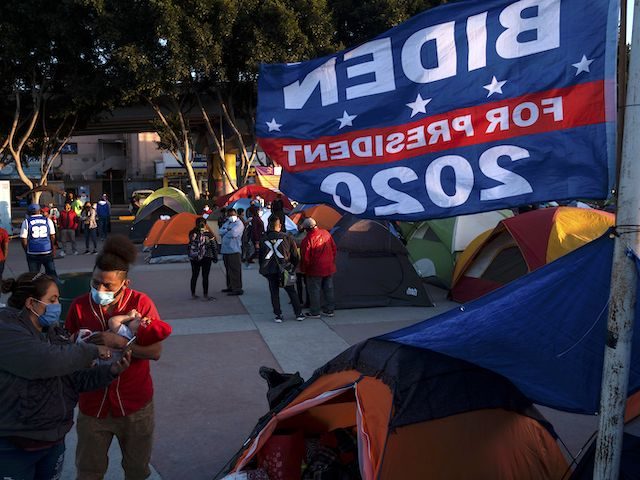Americans oppose the federal policy of “catch and release” for migrants by 2:1, according to a new poll by Harvard-Harris.
Almost 1,800 adults were asked, “Do you think that people who cross the border from Mexico illegally should be turned back to Mexico or released into the U.S. with a court date?”
Sixty-seven percent said they should be “turned back to Mexico,” while 33 percent said they should be allowed into the United States pending court hearings on their asylum claims.
The poll also asked, “Do you think that coming into the United States without any documentation should be a crime or not a crime?” The respondents split, 65 percent to 35 percent, with about two-thirds of respondents saying it should remain a crime.
The survey was conducted February 23 to 25, shortly after President Joe Biden’s deputies began welcoming Central American migrants who had been sent back to Mexico by former President Donald Trump’s Migrant Protection Protocols (MPP) program.
Trump’s MPP program broke the conveyer belt of economic migration into the United States, in which migrants are transported north into U.S. jobs so a percentage of their wages can be sent south to the cartels, coyotes, Central American governments, and their home communities.
Biden’s border officials are signaling their eagerness to extract more migrants for transfer into American communities and workplaces. On March 1, Secretary of the Department of Homeland Security Alejandro Mayorkas told reporters:
We are not saying [to the migrants] “Don’t come.” We are saying, “Don’t come now,” because we will be able to deliver a safe and orderly [legal paperwork] process to them as quickly as possible.”
For years, a wide variety of pollsters have shown deep and broad opposition to labor migration and the inflow of temporary contract workers into jobs sought by young U.S. graduates.
The multiracial, cross-sex, non-racist, class-based, intra-Democratic, and solidarity-themed opposition to labor migration coexists with generally favorable personal feelings toward legal immigrants and toward immigration in theory — despite the media magnification of many skewed polls and articles that still push the 1950s corporate “Nation of Immigrants” claim.
The deep public opposition is built on the widespread recognition that migration moves money from employees to employers, from families to investors, from young to old, from children to their parents, from homebuyers to real estate investors, and from the central states to the coastal states.

COMMENTS
Please let us know if you're having issues with commenting.